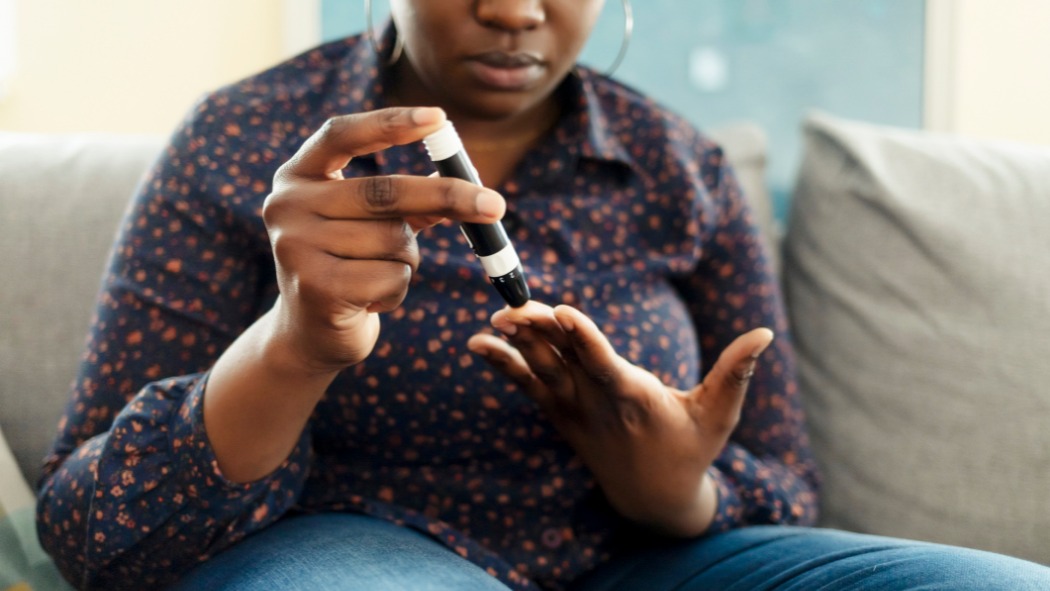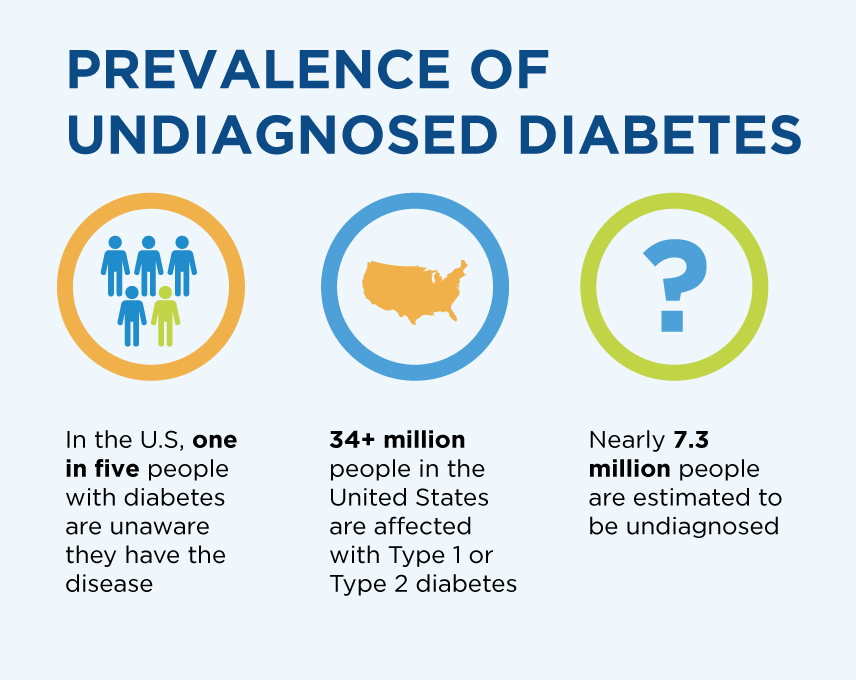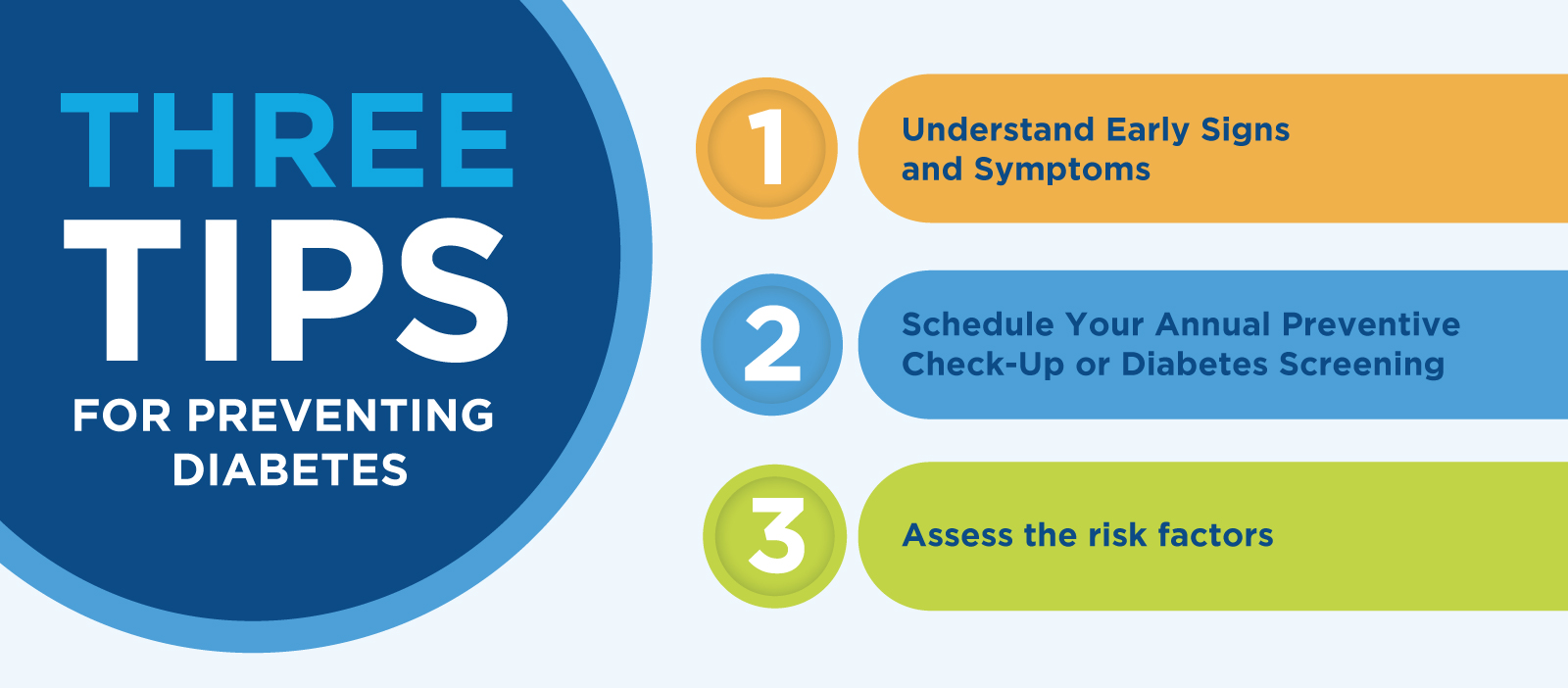Imagine this: You’ve been diagnosed with COVID-19. After running additional tests, the doctor brings unexpected news. You also have Type 2 diabetes.

Imagine this: You’ve been diagnosed with COVID-19. After running additional tests, the doctor brings unexpected news. You also have Type 2 diabetes.
This scenario was uncovered during a recent analysis of Cigna claims data. Cigna's global data and analytics team found that between January 2020 and June 2021, nearly 800 people were found to have Type 2 diabetes after initially being diagnosed or hospitalized with COVID-19. Even more surprising, only 14% were previously diagnosed as pre-diabetic. That means for 86% of people, this news may have come completely out of the blue.
Undiagnosed diabetes is a worsening problem. One in five people with diabetes in the U.S. are unaware of their diagnosis: Over 34 million people in the United States are affected with diabetes, and nearly 7.3 million of them are not aware they have it. Diabetes can lead to serious medical complications including blindness, amputations, kidney failure, and heart disease if left uncontrolled.

Health Equity and Diabetes
It is well-documented that diabetes disproportionally affects certain populations, affecting several race and ethnic populations. Social determinants of health (SDOH) such as race, ethnicity, food access, education, health care coverage, and language barriers, to name a few, all contribute to delay in diagnosis of diabetes. Based on recent Cigna claims data, 52% of those with Type 2 diabetes were at significantly higher risk of having unmet social needs. This was even higher, 56%, for those who were previously undiagnosed with diabetes before their primary COVID-19 diagnosis.

The chart above looks at factors that impact overall health and well-being.
Education is the key to timely detection of diabetes. We sat down with Dr. Mandeep Brar, board certified endocrinologist and Cigna medical director, who shared a number of actions people can take right now to help ensure the timely diagnosis of diabetes.

1. Understand Early Signs and Symptoms
“Sharing any new symptoms with your primary care provider can be crucial in early detection for proper and timely treatment,” said Dr. Brar. “Common signs and symptoms include: frequent urination, excessive thirst and/or hunger, unexpected weight loss, cuts or bruises that are slow to heal, frequent infections, very dry skin, extreme fatigue, and blurry vision.”
2. Schedule Your Annual Preventive Check-Up or Diabetes Screening
“Regardless of symptoms, one of the most powerful ways to detect diabetes is to be screened for this disease with a simple blood test by your primary care provider which can be easily performed at your annual preventive check-up,” said Dr. Brar. “If diagnosed with prediabetes, there are a number of lifestyle changes to combat prediabetes and prevent or delay Type 2 diabetes and other serious health problems. These changes include eating healthy, increasing physical activity, losing weight, and managing stress.”
“The American Diabetes Association recommends regular diabetes testing for all people, regardless of symptoms, above the age of 45 – or consult with your physician to see if testing is advisable if you are experiencing symptoms or at higher risk.”
3. Assess the Risk Factors
“It’s also important to understand that some people are more likely to develop diabetes than others,” said Dr. Brar. “ In addition to being 45 years or older, there are a number of risk factors which include being overweight, having a parent, or sibling with Type 2 diabetes, certain ethnicities or lack of consistent physical activity. If you have any of these risk factors then you should request a screening test for diabetes with your primary care provider regardless of your age.”
You can assess your risk for diabetes using this tool from the American Diabetes Association.
Cigna is committed to addressing health disparities and improving health and well-being for all. As part of the Cigna Foundation’s Health and Well-Being grant program, we are continuing to expand our partnerships with nonprofits supporting under-resourced communities who are systemically disadvantaged with regards to social determinants of health. Additionally, a multi-year project has been underway to create culturally sensitive diabetes resources for various ethnic groups – with the goal of helping both clinicians and patients.

Affordable Health Insurance Plans
For 2022, Cigna is offering a new Individual and Family Health Insurance Plan specifically designed for those with diabetes.